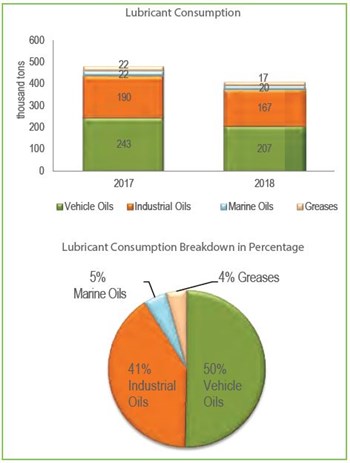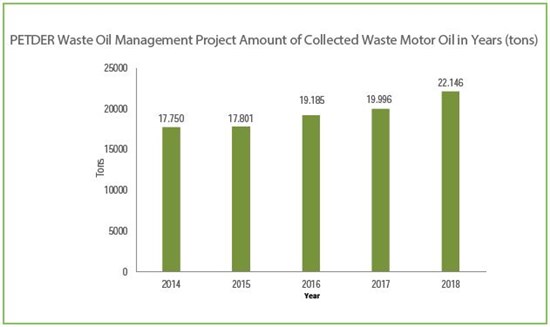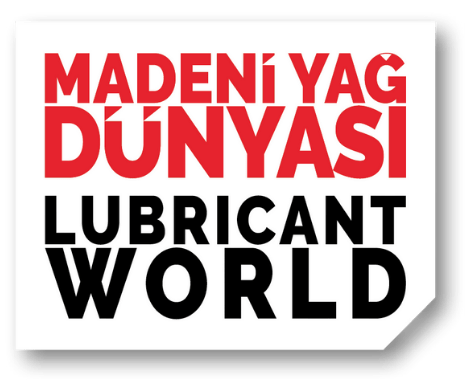PETDER published the 2018 Sector Report, which includes detailed information and data on the oil sector. According to the report, lubricant consumption decreased by 14.04 percent in 2018.
Niyazi İlter, PETDER Secretary General, shared the following data regarding the lubricants in the 2018 Sector Report:
Lubricant consumption in Turkey, which is estimated using the data obtained from 10 lubricant companies by their voluntary contribution, the Foreign Trade Statistics published by TurkStat, and the statements submitted to the Ministry of Environment and Urbanization, was 478 thousand tons in 2017, and became 410,579 tons with a decrease of 14.04 percent in 2018.

Vehicle oils consisted of 50 percent of the total consumption, while the remaining 41 percent was industrial oils. Of the 207 thousand tons of vehicle oils consumed in 2018, 176 thousand tons were consumed as motor oil. Commercial vehicles consumed 104 thousand tons of the motor oils, whereas 68 thousand tons were consumed by passenger vehicles, and 3 thousand tons were consumed by motorcycles. Motor oil consumption decreased by 13.7 percent compared to the previous year.
In 2018, a total of 167 thousand tons of industrial oils were used in our country. Hydraulic oils consisted of 70 thousand tons of the industrial oils used in 2018. This is followed by process oils with 39 thousand tons, transformer oils with 11 thousand tons, gear oils with 8 thousand tons and metal processing oils with 7 thousand tons. Other oils account for the remaining 31 thousand tons.
In the special products category in 2018, the use of antifreeze decreased by 33 percent from 37 thousand tons to 25 thousand tons. The use of hydraulic brake fluid decreased from 3 thousand tons to 2 thousand tons.
22,146 tons of waste motor oil collected in 2018
In 2018, the amount of waste motor oil collected by PETDER and delivered to the enterprises licensed by the Ministry of Environment and Urbanization increased by 10.75 percent to 22,146 tons.

Largest waste oil providers in 2018 were vehicle services, industrial vehicle parks, construction and mining sectors respectively. İstanbul, Ankara and İzmir were the cities that delivered the highest amount of waste motor oil.
The amount of waste oil collected by PETDER in the last 14 years was 239,230 tons and the amount of resources used for the project in this period was 65 million TL.
Underlining that PETDER is the sole authority for the collection of waste motor oils, PETDER Secretary General İlter made the following statements:
“PETDER continues its efforts to increase the amount of waste motor oil collected. With the support of the relevant public institutions, especially in recent years, significant achievements have been achieved in this field. In this regard, the most significant indicator is that the surplus in base oil demand decreased by 10.96 percent in 2018 compared to the previous year.
In addition, it is observed that awareness has started to develop as a result of the activities on waste motor oils. However, some of the waste motor oils are still used in the ‘number 10 oil’ activities in our country. The ‘number 10 oil’ is a non-standard fuel product, which will absolutely damage the vehicle and may cause serious accidents with deaths or injuries.
The ‘number 10 oil’ chain consists of five main rings:
1- Waste Motor Oil Producers Illegally Selling Waste Motor Oil
2- Unauthorized Carriers/Collectors of Waste Motor Oil
3- Facilities Producing ‘Number 10 Oil’ for Illegal Use
4- Places Where ‘Number 10 Oil’ Is Sold As Fuel
5- ‘Number 10 Oil’ Users
In order to prevent ‘number 10 oil’ activities, regular and effective inspections and sanctions should be applied separately to all five rings of this chain, and they should be regularly shared with the public.”




